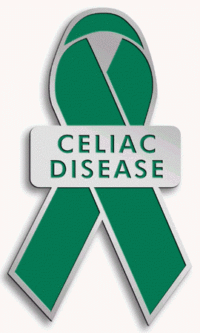
Celiac disease is a serious genetic autoimmune condition where eating foods with gluten (wheat, rye, and barley) triggers the body to damage the small intestines. When the small intestines are damaged, nutrients cannot be absorbed properly by the body which can cause chronic digestive symptoms. About 2 million people in the US are affected and the only current treatment is a gluten-free diet.
The first case of Celiac Disease was first reported in 1938 during a time when this disease was exclusive to children with a high rate of mortality, according to Harvard Business School’s expert, Dr. Alessio Fasano who refers celiac disease as an auto immune disease. He explains that the thinking has shifted from gluten as being the main culprit to looking at the human microbiome, or lack of friendly gut flora. He observed that infants predisposed to celiac disease had low levels of friendly bacteria.
The most common digestive symptoms found in children with celiac disease:
- abdominal bloating and pain
- chronic diarrhea
- vomiting
- constipation
- pale fatty stools
So, do probiotics help with celiac disease?
A Study† of 423 celiac patients (100 of them taking dietary supplements, mostly probiotics) reported a higher quality of life. However some of them also reported a higher incidence of digestive distress. The reason may be attributed to the fact that some probiotics that claim “gluten free” contain some traces of gluten.
** A Columbia University Medical Center Report presented in 2015 showed 12 of 22 tested probiotic brands that claimed “gluten free” contained detectable levels of gluten. For a probiotic to be labeled “gluten-free,” gluten needs to be less than 20 parts per million (ppm). The Columbia University report showed that most of the probiotics contained less than that, but four brands contained more. It’s not clear whether trace levels of gluten could be harmful for someone with celiac disease or maybe those that were taking probiotics just had more digestive symptoms than others, but either way, why would anyone want to take a chance?
What most people don’t realize is that most probiotics, especially the big brands are made overseas. Although the FDA does not “regulate” dietary supplements including probiotics, they do regularly inspect the facilities in the United States where they are made, which is not the case for products made overseas.
*Probiotics can help with some of the digestive symptoms of celiac disease which are more common in infants and children.
*Be sure to purchase probiotics made in the USA because the FDA regularly inspects the facilities and the manufacturing claims.
We proudly manufacture FloraTummys here in the USA and test our products for gluten, including wheat, rye, oats, and barley.
†https://www.ncbi.nlm.nih.gov/pubmed/25203364
**Source: http://newsroom.cumc.columbia.edu/blog/headline/many-probiotics-contain-traces-of-gluten-study-says/

